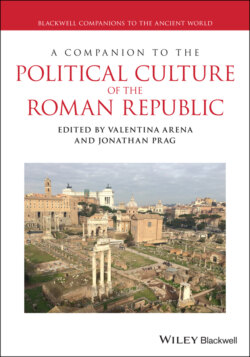Читать книгу A Companion to the Political Culture of the Roman Republic - Группа авторов - Страница 58
5.1 Introduction
ОглавлениеYears before the American Revolution a young John Adams read the history of British North America in Roman narratives. Even ‘immortal Rome’, he wrote at the age of 20 in a letter to a friend, ‘was at first but an insignificant village…but by degrees it rose to a stupendous Height’. When Rome sunk into debauchery, the young Adams concluded, it became ‘easy prey to Barbarians’. Similarly, when England, currently ‘the greatest Nation upon the globe’ will decline, ‘the great seat of Empire’ may transfer ‘into America’ (Letter to Nathan Webb, 12 October 1755; see Taylor 1977, vol 1: 5). Years later, as a representative to the revolutionary First Continental Congress, Adams was willing to bring his and the Roman worlds even closer yet. He believed that that body’s delegates’ reaction to the horrid, and false, news of the bombardment of Boston in September 1774 – they vigorously chanted ‘War! War! War!’ – would ‘have done honour to the oratory of a Briton or a Roman’ (Letter to Abigail Adams, 18 September 1774; Smith 1976, vol. 1: 80). Reflecting on the American Revolution from his retirement in 1805, the second president of the United States ‘read the history of all ages and nations in every page’ of a Roman history he was studying at the time. Indeed, it was ‘especially the history of our country for forty years past’ that John Adams could recognise and discover in the Roman annals. If one would only ‘change the names’, then ‘every anecdote will be applicable to us’ (see Richard 1994: 84).
Adams was anything but unique in his reflections. Indeed, throughout their revolution Americans incessantly compared their compatriots to revered Romans, their enemies to malicious Romans, and saw their new nation as a reincarnation of Republican Rome. So powerful was this mode of thought that many contemporaries wished they would get a chance to re-experience that revered history, while others feared that classical history, especially the decline and dissolution of the ancient polities, particularly the Roman Empire, would repeat itself in America. Occasionally, when the stakes were especially high, they thought they were, as Edmund Pendleton, president of the Virginia Convention, put it in 1776, ‘treading upon the Republican ground’ of Rome (see Gummere 1963: 18).
